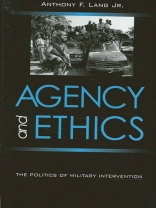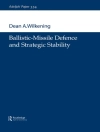Explains why military interventions with humanitarian goals consistently fail.
Why does political conflict seem to consistently interfere with attempts to provide aid, end ethnic discord, or restore democracy? To answer this question, Agency and Ethics examines how the norms that originally motivate an intervention often create conflict between the intervening powers, outside powers, and the political agents who are the victims of the intervention. Three case studies are drawn upon to illustrate this phenomena: the British and American intervention in Bolshevik Russia in 1918; the British and French intervention in Egypt in 1956; and the American and United Nations intervention in Somalia in 1993. Although rarely categorized together, these three interventions shared at least one strong commonality: all failed to achieve their professed goals, with the troops being ignominiously recalled in each example. Lang concludes by addressing the dilemma of how to resolve complex humanitarian emergencies in the twenty-first century without the necessity of resorting to military intervention.
Cuprins
Preface
Acknowledgments
1. Introduction
2. Intervention in Russia
3. Intervention in Egypt
4. Intervention in Somalia
5. The Dilemma of Humanitarian Intervention
Notes
Bibliography
Index
SUNY Series in Global Politics
Despre autor
Anthony F. Lang Jr. is Program Officer at The Carnegie Council on Ethics and International Affairs.












